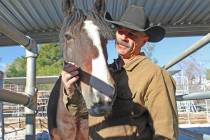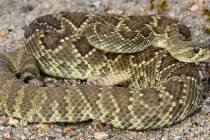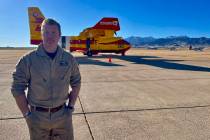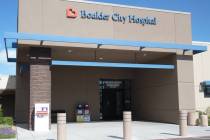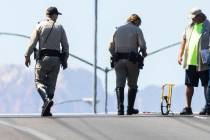Preparing for emergency helps first responders
EMTs and paramedics for the fire department are trained to respond to medical and traumatic emergencies. Under the supervision of doctors, nurses and other paramedics, we are professionals who have three to four years of medical training to handle and diffuse different situations. We receive two to four years of schooling, plus departmentwide academy training in a number of fire-related emergencies. We are the first line of defense in an emergency. When you call 911 for a medical or fire-related emergency, we are the first people you will see.
As first responders, we follow certain guidelines to provide fast and effective care while keeping ourselves safe.
But there are things you can do make your family safer. Emergencies can occur at any time, and no one is immune. Preparing yourself and your family for an emergency can help provide us with fast and valuable information, and can potentially prevent life-threatening damage to lives and property. Preparing for two types of emergencies can save time and make a life-saving difference.
Medical and traumatic emergencies
Some of the scariest moments are times when people feel helpless. To see yourself or someone in your family suffering is scary. The minutes before EMS arrive can feel like hours. At the fire department we are promoting a proactive approach to medical and traumatic injuries and illnesses.
During an assessment, we ask questions to get a better understanding of the patient’s health and medical history. Writing down this information accurately will help provide us with a better understanding of your situation. Hang medical information on your refrigerator or in another common area. There should be a different sheet of paper for each family member. The information should include basic information: name; address; birth date; Social Security number; all conditions diagnosed by a medical professional; any surgeries or medical procedures; name and phone number of primary-care physician and specialty doctors such as a cardiologist or oncologist; all prescribed medications, over-the counter medications, vitamins and supplements. A list of allergies to medications and food is also crucial. An emergency contact list of relatives and friends is helpful.
The list for the person or persons involved should be given to the lead paramedic or captain on scene.
Fire-related emergencies
There is fire risk in every home, but the majority of house fires can be prevented. There are some steps you can follow beyond having smoke detectors and fire extinguishers in you home. The Boulder City Fire Department is promoting a “Family Evacuation Plan and Map” for every home and apartment. It is important that every person in the house knows how to evacuate the building and get to a safe location.
If the house or apartment catches fire, things might become chaotic and nerve-racking. Staying calm and out of harm’s way are huge advantages in assuring family safety.
Here are a few tips: First, draw a map of the house, including the front and backyard, and the garage. Label each room for its significance with all doors and windows leading into it. A good idea is to locate and identify all the smoke detectors, telephones, and fire extinguishers.
Everyone should know two possible exits from the house. You should be able to draw and label exit routes to escape any situation. Another good idea to have a rendezvous or meeting location to help identify when everyone is out of the house and to keep together. The mailbox, across the street next to the palm tree, on the neighbor’s front porch are examples of meeting areas. Retreat to a safe distance from the house before calling 911.
Once an evacuation plan has been developed, make copies for each bedrooms. I recommend families practice certain situations similar to public schools’ fire or shelter in place drills on a monthly basis.
Take the time to come up with a plan, and if the emergency happens, you will be glad you did.
If you have any other questions or comments regarding Emergency Preparedness please feel free to contact me at the fire house at 293-9228. Thanks and have a wonderful weekend.
Brian Shea is a Boulder City paramedic/firefighter. If you have further questions about this or any fire safety issue, contact the Boulder City Fire Department at 293-9228.




